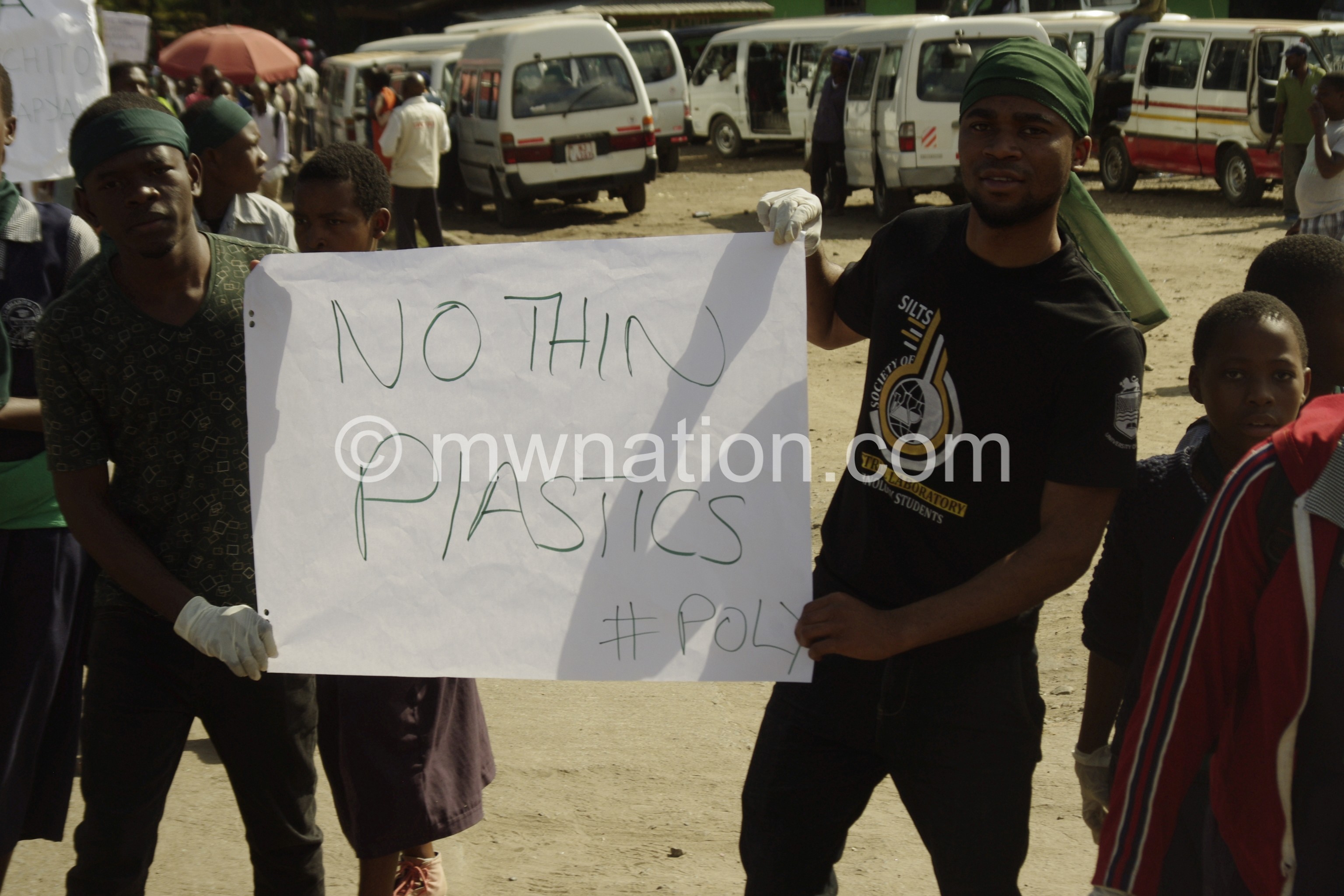Protest turns into awareness walk against plastics
It was conceived to be a protest march for campaigners and their groups to petition the High Court to speedily determine the legality of an injunction freezing a State-sponsored ban on thin plastics.
But the demonstration on Friday turned out to be an awareness walk as scores of environmentalists, students and activists took to the streets barely a day after Justice Healey Potani finally quashed the stay order obtained by Abdul Majid Sattar of Rainbow Plastics and 12 other manufacturers of unrecyclable plastics which constitute widespread pollution in the country.

Throughout the procession—from Blantyre’s colonial Town Hall to Chichiri Trade Fair ground, just opposite Blantyre Court House—the marchers saluted the court for entirely overruling the manufacturers’ stance that the outlaw violated their right to be heard, economic activity and similar regulations in the Southern African Development Community (Sadc) sub-region.
Speaking at the end of the march, Coordination Union for the Rehabilitation of the Environment (Cure) executive director Christopher Mwambene saluted the participants for being part of the growing movement to reduce plastic pollution in line with the theme of this year’s World Environment Day on June 5.
“In Malawi, we have legislation that bans manufacturing, distribution, sale and use of thin plastics, but manufacturers of thin plastics obtained a court order barring government from enforcing these regulations,” said Mwambene.
He added: “We are happy that the court has vacated the injunction, meaning that the government is free to enforce existing regulations to beat plastic pollution. However, the battle is not over. There is also need for behavioural change. Most of the times, we carry plastic materials, especially carrier bags, which we do not need. Let’s stop using plastics which we cannot re-use or recycle. If we do this, manufacturers will not have a good reason to continue producing a product which degrades the environment.”
Signs of failure to responsibly reduce and manage plastic waste that people churn out were perceivable throughout the march, which police wanted called off at the eleventh hour on the basis that it had been overtaken by the landmark ruling on Thursday.
Wildlife and Environmental Society of Malawi (Wesm) regional president Paul Taylor said the push to beat plastic pollution is winnable if government and its partners emulate Rwanda’s example by sensitising the public to its environmental costs and extending the ban beyond plastics less than 60 microns.
“The judgement is victory as we strive to beat plastic pollution, but the country needs to move forward to use no plastic, not just thin plastic,” he said.
Last week, the Association of Environmental Journalists held a similar march in Lilongwe. Tawonga Mbale-Luka, director of Environmental Affairs in the Ministry of Natural Resources, Energy and Mining, described the marches as timely public endorsement of government’s steps to kick out thin plastics which hurt the enviroment.
Luka testified in the case which has been hanging in court for the past two years, a long-wait the civil society consortium in Blantyre set out to demonstrate against on Friday.
The case brought into question Environmental Management Regulation of 2015 which she described as a result of wide consultations with relevant stakeholders, including the producers.
But Malawi Environmental Endowment Trust (Meet) coordinator Karen Price described as timely Potani’s verdict as it comes just when the country is commemorating the Word Environment month, focusing on eliminating plastic waste.





